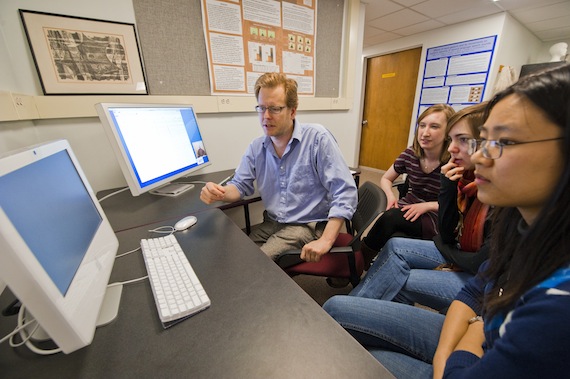
Students examine data in Spencer Kelly’s cognitive neuroscience lab.
For an article titled , The Atlantic magazine contacted , associate professor of psychology, for his expertise on hand gestures.
The article examined two kinds of hand gestures. The first are “co-speech gestures”, unconscious ways we move our hands as we talk. Professor Kelly talked about the use of these kinds of hand gestures in
“Emblematic gestures”, the second kind of hand gestures, are culturally codified motions we use to supplement or substitute speech—the peace sign, the thumbs-up, the raised middle finger, etc.
Kelly studies the role gestures play in language. “I focus primarily on hand gestures that spontaneously accompany speech. These gestures are interesting because they occur simultaneously with speech but reflect meaning in a distinct way from words.”
Working from the position that language is an embodied ability that evolved from bodily communication systems (gestures, facial expressions, eye gaze, etc.) in our evolutionary past, his work investigates how language interacts with the body in present-day communication. For more, .